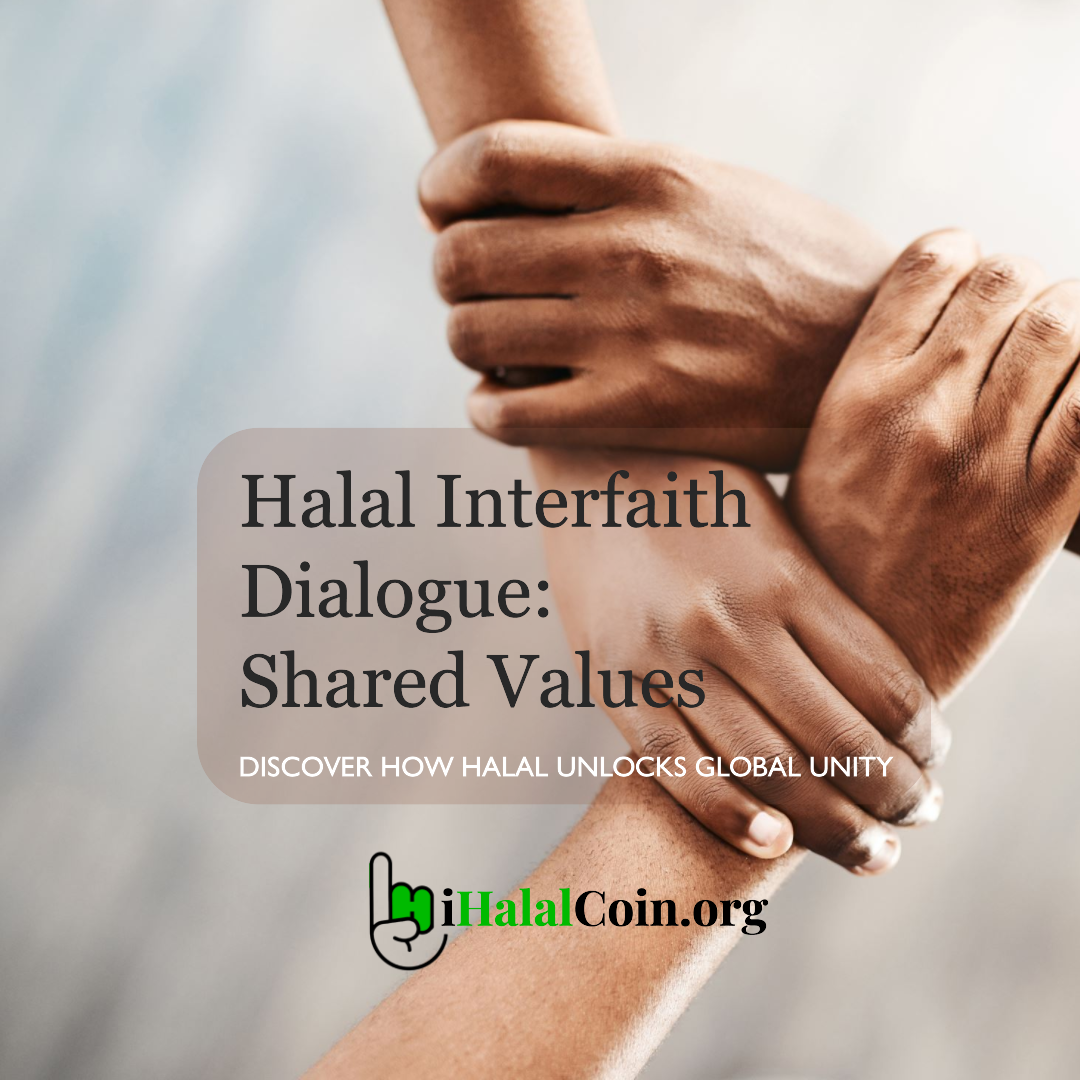Hello, dear readers! Today, we’re embarking on a journey that intertwines faith, food, and fellowship. We’re exploring the intersection of Halal and interfaith dialogue. As the Quran beautifully states, “O mankind, indeed We have created you from male and female and made you peoples and tribes that you may know one another.” (Quran 49:13). So, let’s uncover the shared values that build bridges between faiths.
Understanding Halal: More Than Just Food
When we say ‘Halal,’ it’s easy to picture a delicious spread of food that adheres to Islamic dietary laws. But Halal extends far beyond the dining table. It’s a lifestyle that millions of Muslims around the globe adhere to, encompassing ethical consumerism, superior hygiene standards, and a profound respect for life. As the Quran states, “Eat of what is on earth, lawful and good” (Quran 2:168), reminding us that Halal is not just about what is permissible, but also what is good and beneficial.
Delving deeper into the concept of Halal, it guides many aspects of a Muslim’s life, from business transactions to personal hygiene. Prophet Muhammad (PBUH) said, “God is pure and loves purity, He is clean and loves cleanliness.” (Sahih Muslim). This Hadith underscores the importance of cleanliness, a key aspect of Halal, in the daily life of Muslims.
The Role of Shared Values in Interfaith Dialogue
Interfaith dialogue isn’t just about polite conversation. It’s about fostering understanding, respect, and unity among diverse faiths. Shared values play a pivotal role in that. Many faiths, not just Islam, emphasize the importance of ethical choices in consumption. These shared values can serve as a common language, fostering dialogue and understanding.
The Prophet Muhammad (PBUH) said, “The world is beautiful and verdant, and verily God, be He exalted, has made you His stewards in it, and He sees how you acquit yourselves.” (Sahih Muslim). This Hadith resonates with the environmental stewardship promoted in many faiths, providing a shared value that can be a starting point for interfaith dialogue.

Halal as a Bridge in Interfaith Dialogue
The principles of Halal can serve as a bridge in interfaith dialogues. Consider the concept of ‘Tayyib,’ which means ‘good’ or ‘wholesome’ in Arabic. This principle, integral to Halal, resonates with many faiths and ethical systems, creating common ground. There have been interfaith initiatives, such as shared community gardens and ethical food cooperatives, that use these shared principles as a foundation.
A community garden in a diverse neighborhood could be a platform for interfaith dialogue. Here, the principles of Halal, such as ethical treatment of animals and respect for the environment, can align with the teachings of other faiths. Through shared activities and discussions, participants can learn about each other’s beliefs and practices, fostering mutual understanding and respect.
The Impact of Halal on Non-Muslims
The influence of Halal isn’t confined to the Muslim community. A growing number of non-Muslims are embracing Halal principles, whether it’s choosing Halal food for its perceived health benefits or supporting Halal businesses for their ethical practices. As the Quran states, “There is no compulsion in religion” (Quran 2:256), emphasizing that the adoption of Halal principles by non-Muslims is a choice made out of respect and understanding, not obligation.
This trend of non-Muslims embracing Halal principles opens up opportunities for dialogue and understanding. For instance, a non-Muslim choosing Halal products out of concern for animal welfare might find common ground with a Muslim who chooses Halal for the same reason. This shared value can serve as a starting point for a conversation about faith, ethics, and personal beliefs.

Moving Forward: Halal and the Future of Interfaith Dialogue
Looking ahead, Halal has a significant role to play in the future of interfaith dialogue. As we become more interconnected and globalized, understanding and respecting different faiths and lifestyles become increasingly important. By engaging in dialogues and exploring shared values, we can foster a more inclusive and harmonious society. As the Quran says, “And We have certainly created man, and We know what his soul whispers to him, and We are closer to him than [his] jugular vein” (Quran 50:16), reminding us of our shared humanity and the importance of understanding and empathy.
Imagine a world where interfaith dialogue is the norm, where we celebrate our differences and find unity in our shared values. Halal, with its emphasis on ethics, respect for life, and conscious consumption, can be a guiding principle in this dialogue. It’s a challenge, no doubt, but one that holds the promise of a more understanding, respectful, and harmonious world.
Conclusion
So, my friends, Halal is more than a dietary law – it’s a bridge connecting different faiths, a catalyst for interfaith dialogue, and a testament to the power of shared values. The next time you see a Halal label, remember, it’s not just about food. It’s a symbol of a lifestyle that cherishes ethical consumerism, respect for life, and a commitment to shared values. As Prophet Muhammad (PBUH) said, “None of you [truly] believes until he wishes for his brother what he wishes for himself.” (Sahih Bukhari), a reminder that at the heart of all faiths is a call to empathy, understanding, and shared values.

